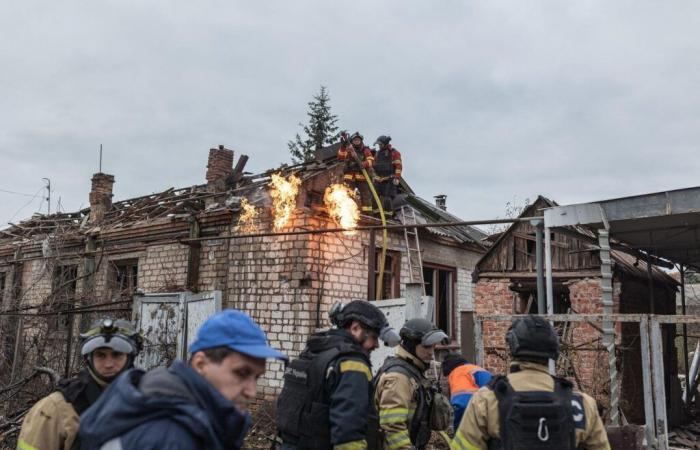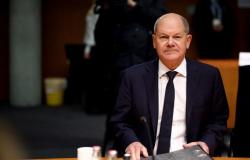► The EU finances joint arms purchases for the first time
The European Union announced Thursday, November 14 that it had, for the first time, financed the joint purchase of arms by the 27, most of which were for Ukraine. The EU had already financed arms purchases to help kyiv, but outside its budget, thanks to an ad hoc financial instrument.
“This is the first time we have used the EU budget to support member states in joint purchasing” weapons, underlined the Vice-President of the European Commission Margrethe Vestager, quoted in a press release.
► Russian forces briefly return to a formerly occupied city
Russian infantry briefly managed to enter the city of Kupiansk, located in eastern Ukraine and having already been occupied at the start of the Russian invasion in 2022, before being repelled by the Ukrainian army, local authorities said.
“The situation was indeed very difficult” Wednesday with “assaults” repeated Russians, indicated the head of the municipal military administration, Andriï Bessedine.
This brief breakthrough comes as the Russian army has been advancing for months on the eastern front, advances which have particularly accelerated since October. Located in the Kharkiv region (northeast), the city of Kupiansk had around 27,000 inhabitants before the start of the Russian invasion in February 2022.
► Moscow claims the capture of a village in eastern Ukraine
Russia has claimed the capture of a village near Kurakhové, in eastern Ukraine, one of the sectors of the front where its troops are advancing against a Ukrainian army that has been in retreat for several months.
Russian forces “continued to advance deep into the enemy’s defenses and liberated the settlement of Voznesenka”in the eastern region of Donetsk, the Russian Defense Ministry said in its daily report of the fighting.
Belgium






